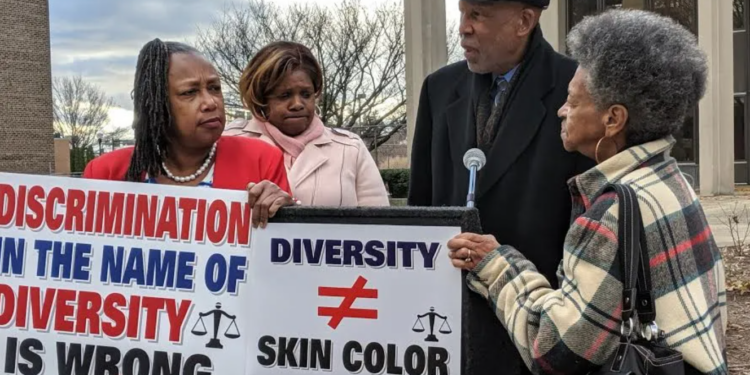I recently pitched an article to an online publication keen to platform ‘diverse voices’ on higher education policy, including ‘Equality, Diversity, and Inclusion’. My article was coming at it from a different angle to others I’d seen on the website, such as one recommending that we do not arrange chairs in rows where there might be ‘BAME’ staff and students – to be more inclusive (give me a break).
In my article, I made the case against racial eligibility criteria on student opportunities. In response, the editor who reviewed it suggested that I could “argue that these existing schemes [ones targeting individuals based on socioeconomic status rather than race] are insufficient somehow against those for race equality”. I didn’t want to redraft my article to argue for a viewpoint opposite to the one I hold and had written about, and so I left it at that.
But the editor’s response seemed to avoid any acknowledgement of the possibility that there could be a case against racial eligibility criteria on student opportunities. After all (her tone seemed to imply), why would a person not welcome positive discrimination based on race? It’s about ‘race equality’…
Well, why would you – whatever your racial background – not welcome it? Because you want to be treated equally and on merit, not with regard to an irrelevant characteristic like skin colour. You don’t want to be targeted or excluded, or treated more or less favourably, based on that. It seems quite simple to me.
Of course, not everyone shares my perspective on this topic. But we already get ample exposure to the view that we must achieve equal numbers of people from ‘groups’ in every domain of life and at any cost – otherwise there is no equality after all. I don’t have to represent or defend that view here. The uncritical adoption of that view by our institutions is why I’m sitting here and typing this now. I am making a counterargument.
I grew up in what in many ways seemed like post-racial Britain. Not because racism didn’t exist. It did. But a one-sided idea about race was not pushed in your face by the media or other institutions. There was no special training to teach us that people in this racial category are marginalised and think and want this and that, and people in this racial category are this and that and so forth. Race didn’t seem to matter to most people. Even being mixed white and black didn’t seem to matter.
And when race did seem to matter to some people – whatever they could say to undermine your sense of belonging out of ignorance, bigotry or a misguided sense of pity – you knew you had the right to equal treatment under the law. And no one could take that away.
It is more than a small comfort to know that the law of your country protects you in that way, by regarding you as an equal citizen with no special treatment or withholding of rights based on race. And you know something is wrong when it doesn’t.
There are, of course, people who hold the view that the U.K. is racist and that positive discrimination is needed to overcome this. I can respect that as a view, though I do not share it. Some might have their reasons for holding such a view. Experiences and perceptions are real. But the thing is (and I realise I’m stating the obvious here, but that’s where we find ourselves), not everyone has the same experiences or perceives things in the same way.
Two people can thoroughly disagree on just about everything regarding their experiences, though they happen to share a characteristic such as race. And one of them might outright reject the idea that ‘groups’ based on that characteristic even exist as a real category. A specific viewpoint, set of views or ‘lived experience’ is not inherent to a racial ‘group’. That would be racial essentialism by another name.
And so, the ‘lived experience’ of some people shouldn’t be imposed on others or used to undermine something so fundamental and important as equal treatment under the law.
Rejecting race-based positive discrimination isn’t a mad or selfish attempt to disrupt the programme. It’s simply standing up for what you think is right.
This article first appeared on Amber Muhinyi’s Substack. Subscribe here.













To join in with the discussion please make a donation to The Daily Sceptic.
Profanity and abuse will be removed and may lead to a permanent ban.